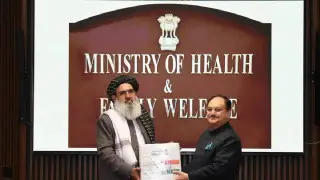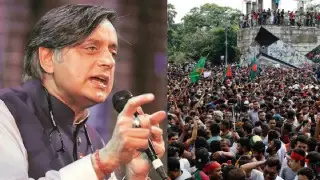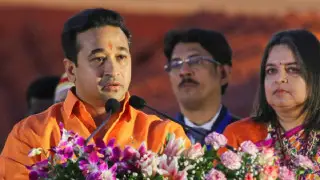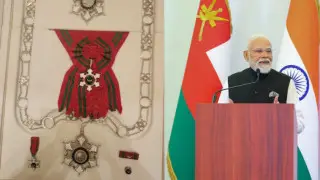
X
In a recent statement, BJP MLA Raja Singh sparked controversy by urging the electorate to vote for 50 staunch Hindu MPs who would advocate for establishing a Hindu Rashtra in the Indian Parliament. This call has generated significant debate and raised concerns about its implications for India's secular fabric.
Raja Singh, a prominent BJP leader from Telangana, made this appeal during a public gathering. He emphasized the need for a strong representation of Hindu interests in the Parliament. He argued that electing 50 committed Hindu MPs would pave the way for the declaration of India as a Hindu Rashtra. His remarks have drawn mixed reactions from various quarters, with some supporting his view and others vehemently opposing it.
The idea of a Hindu Rashtra, or a nation governed by Hindu principles and values, has been a subject of debate in India for many years. Proponents argue that it would preserve and promote Hindu culture and traditions, while critics contend that it contradicts the secular principles enshrined in the Indian Constitution. Raja Singh's call for a Hindu Rashtra has reignited this debate, bringing the issue back into the spotlight.
Press Release !
— HinduJagrutiOrg (@HinduJagrutiOrg) June 30, 2024
‘Vaishvik Hindu Rashtra Mahotsav’
Elect 50 staunch Hindu MPs who would demand Hindu Rashtra in the Parliament ! - Mr T Raja Singh Lodh, MLA, Goshamahal Constituency, Bhagyanagar (Hyderabad), Telangana (@TigerRajaSingh)
“These days, many politicians pretend… pic.twitter.com/hb36NeBRXL
Political leaders across the spectrum have reacted to Raja Singh's statements. Members of his own party, the BJP, have offered varied responses, some endorsing his views and others distancing themselves from his comments. Opposition parties have criticized Singh’s remarks, accusing him of attempting to polarize the electorate and undermine India’s secular foundation.
The public response to Raja Singh's appeal has been polarized. Some citizens have expressed support for the idea of a Hindu Rashtra, citing the need for a greater emphasis on Hindu values in governance. Others have condemned the call, arguing that it threatens the unity and diversity that define India. Social media platforms have been abuzz with discussions and debates on the topic, reflecting the diverse opinions held by the populace.
Legal experts and constitutional scholars have weighed in on the implications of Raja Singh’s call for a Hindu Rashtra. Many have pointed out that such a move would require significant amendments to the Indian Constitution, which currently upholds secularism as one of its core principles. The process of making such amendments would be complex and contentious, involving extensive legal and political challenges.
Raja Singh's call to elect 50 staunch Hindu MPs to advocate for a Hindu Rashtra has ignited a fresh wave of debate in India. As the nation grapples with this controversial proposal, it is crucial to consider the diverse perspectives and the potential impact on India's secular and democratic framework. The discussion underscores the importance of balancing cultural values with constitutional principles in a diverse and pluralistic society.













Copyright © 2025 Top Indian News
